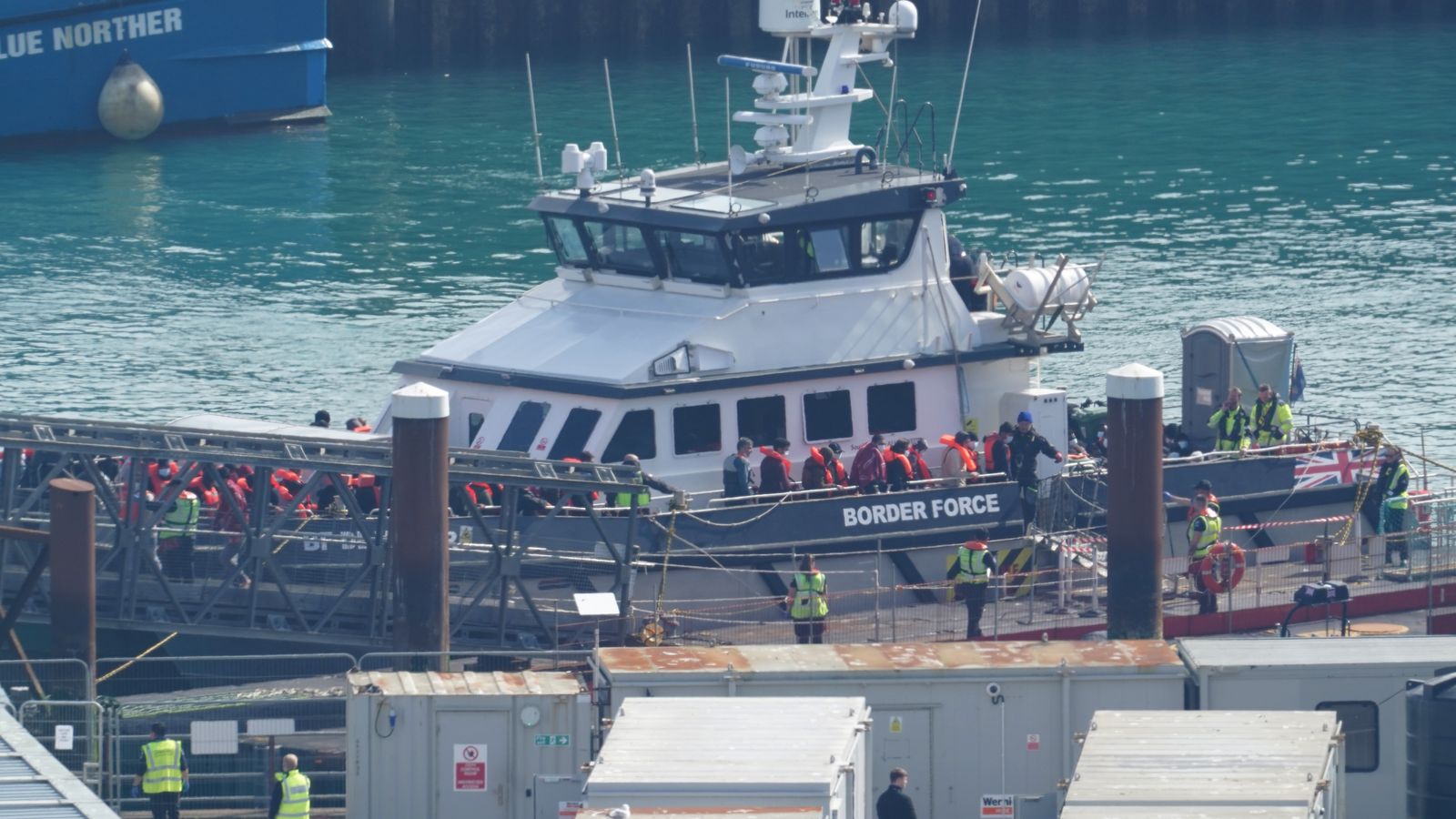Footage appears to show the French authorities using aggressive tactics to intercept small boats carrying migrants across the Channel.
Two video clips obtained in an investigation by Lighthouse Reports and the Observer reportedly show maritime police trying to physically force the vessels to turn around in an attempt to prevent them from making the crossing to the UK.
In footage filmed in October 2023, a Police Nationale patrol vessel is seen circling a dinghy holding around 25 people wearing lifejackets.
The police boat makes sharp turns, which create a wake and waves that flood the dinghy, as those on board try to bail the water out.
According to the Observer, the police vessel that made the manoeuvre in Dunkirk Harbour was bought with funding provided by the UK government in a 2018 deal, which saw the government pledge £45m for extra security measures at Channel ports at a bilateral summit at Sandhurst military academy.
The newspaper quoted an unnamed search and rescue expert who called it a “textbook pushback” – a controversial tactic the Greek authorities have been accused of using to turn back migrant boats at sea.
“That one manoeuvre alone could cause a mass casualty event,” they said. “The water is deep enough to drown in. I’ve seen this in the central Mediterranean many times, but this is the first time I’ve ever seen anything like this happening in the Channel.”
‘It may be an effort to save lives’
Kevin Saunders, the former chief immigration officer for UK Border Force, said the French authorities have made clear they won’t interfere with any boats already at sea.
But he said he believes police were trying to stop the boat from crossing the breakwater from the harbour to the “incredibly dangerous” stretch of water in the Channel.
“It would appear that the French are trying to force the boat back because if they didn’t there’s probably better than a 50/50 chance that it would sink,” he told Sky News.
“While this looks not very good, in fact it may actually be an effort to save lives.”
A second video reportedly shows members of the French gendarmerie threatening to use a large tank of pepper spray against migrants as the police boat pulls alongside the dinghy before ramming into it.
Rishi Sunak, who has promised to “stop the boats”, signed a £480m three-year deal with French president Emmanuel Macron last year to tackle Channel crossings.
During a visit to Samos in November last year, the then home secretary Suella Braverman said the government could “learn” from Greek deterrence methods on immigration but insisted pushbacks were not the UK approach.
More than 500 migrants arrived in the country by small boat on Wednesday – the busiest day of the year so far – while a further 263 people made the journey the following day, taking the total for 2024 to 4,306, while there were 3,793 recorded in the first quarter of last year.
Keep up with all the latest news from the UK and around the world by following Sky News
Government still hopeful on Rwanda plan
The government’s plan to send some asylum seekers to Rwanda was dealt another blow last week when the Lords rejected the latest version of the draft law.
Mr Sunak has said he wants the one-way flights to Kigali to start taking off in the spring and the Safety of Rwanda (Asylum and Immigration) Bill will next go back to the Commons on 15 April, with more time set aside two days later if peers demand further changes.
The bill and a treaty with Rwanda are intended to prevent further legal challenges to the stalled asylum scheme after the Supreme Court ruled the plan was unlawful.
Jeremy Hunt defended the cost of the stalled scheme after a National Audit Office report that estimated it could soar to £500m.
Asked why the government was “throwing good money after bad”, Mr Hunt told Sunday Morning With Trevor Phillips: “We’re not.”
He added: “If I may say very gently, what you haven’t shown is the overall picture, which is that crossings are down this year by more than a third compared to last year.”
Be the first to get Breaking News
Install the Sky News app for free
A Home Office spokesperson said: “An unacceptable number of people are crossing the Channel, and we will do whatever is necessary to end these perilous and fatal journeys.
“We remain committed to building on the successes that saw arrivals drop by more than a third last year.
“Not only have we introduced tougher legislation and agreements with international partners, but we continue to work closely with our French counterparts who are working tirelessly to save lives and stop the boats.”



